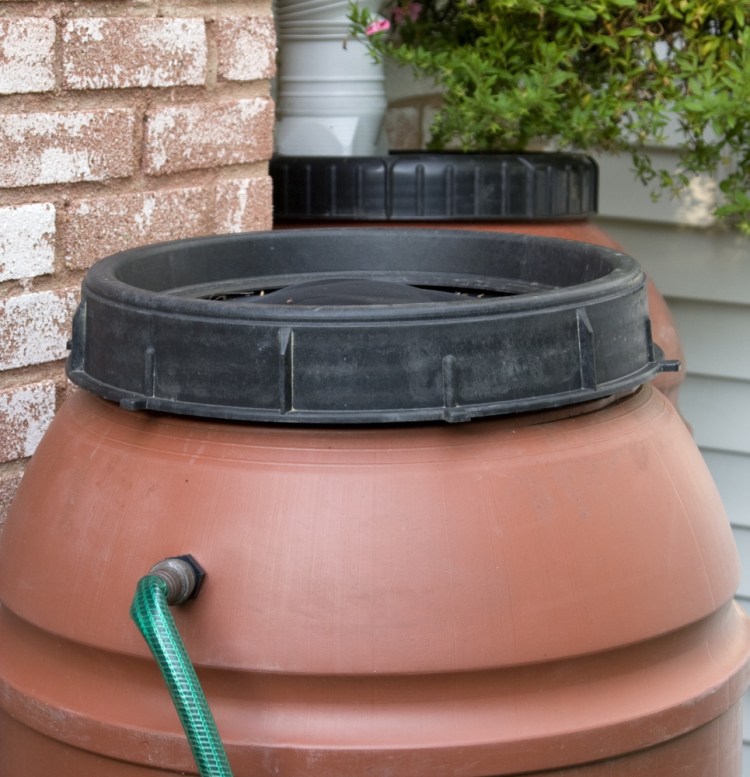“We are so fortunate to live in a part of the world that has well-spaced precipitation across the year, so let’s take advantage of it. What a gift.”
That’s Lisa Fernandes, founder and executive director of Portland’s nonprofit Resilience Hub, making a gentle argument for rain barrels. I might add, less politely, “Duh.”
Rain barrels are an incredibly smart, ridiculously simple, everyday way you can make a positive difference. They reduce pollution from stormwater overflow and they save water, a precious resource though one that’s awfully easy to take for granted in Maine. Also, the barrels are affordable; the city of Portland sells them at bargain rates every spring. In the long term, they’ll cut down on your water bill.
Here’s how it works: You put a big barrel under a downspout and collect rainwater that would otherwise run off from the roof. You use the rainwater to water your lawn and your garden. (If you’re an ambitious, off-the-grid sort, use it to flush your toilet and wash your clothes, too.) Granted, it’s slightly more complicated – you’ll need to figure out where best to place the barrel, how to handle any overflow, how to keep the mosquitoes away. But only very slightly.
“Rain barrels are useful because they allow people to take advantage of a resource that’s already landing on their roof,” Fernandes said. “It allows us to manage stormwater in a more sustainable way, making use of each drop of rainwater before it leaves our property.”
Beyond the great deal on the barrels, the city’s website offers all sorts of helpful information about how to install and use them. Fernandes also likes these online resources: Rainwater Collection Calculator at CSGNetwork.com and Rainwater Harvesting at Texas A&M, rainwaterharvesting.tamu.edu.
We are sorry to sound so evangelistic, but just think of all the potential free water you missed out on last Wednesday night because you did not own a rain barrel. Don’t let the next storm, the next delivery of totally free water, get away. Duh.
— PEGGY GRODINSKY
Send questions/comments to the editors.


